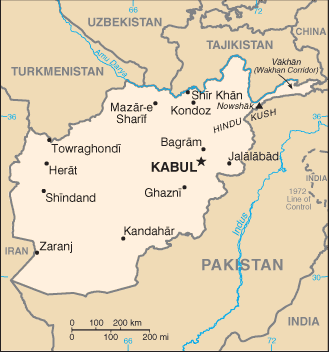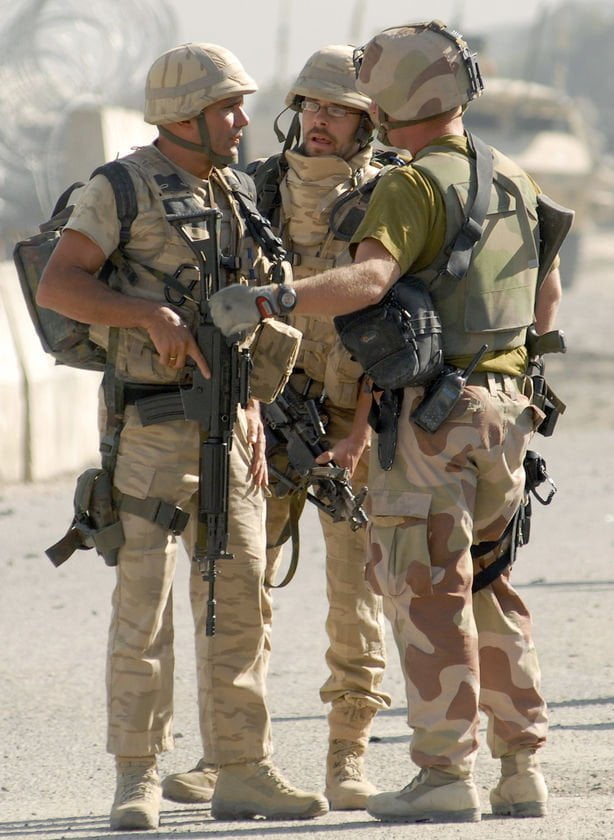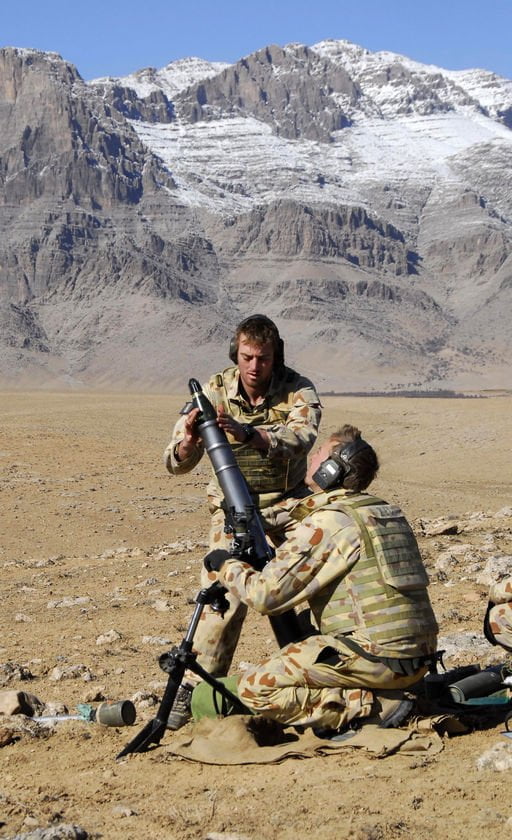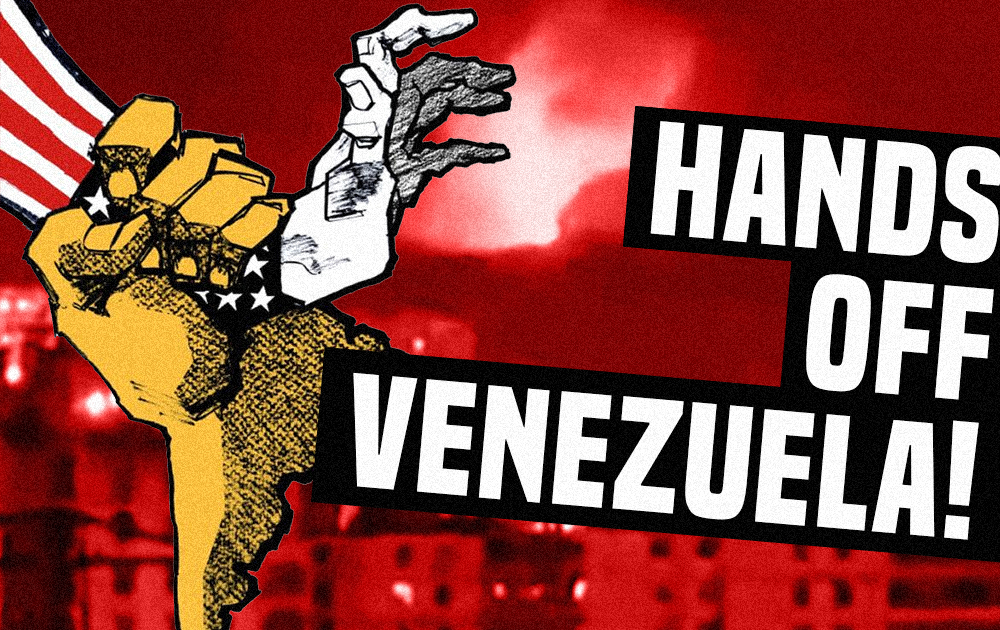The war in Afghanistan
has re-emerged in the headlines as casualty rates for American and British
forces have now reached their highest since the invasion of Afghanistan.
Already more than one hundred American troops have been killed since the
beginning of this year alone, whilst in Britain the news has been dominated
by the deaths of eight soldiers who were killed in twenty four hours over the
weekend. Three were just eighteen. Although this has briefly seen a temporary
rush of sympathy for the dead expressing itself in support for the army, in the
long run this is only exposing Afghanistan
as being an unwinnable venture which is seeing young working class people
sacrificed in the interest of an insane neo-colonial war that is far from in
their interests.
 It is clear that the total death toll since 2001 of Afghans
It is clear that the total death toll since 2001 of Afghans
simply unknown and most estimates do not even factor in the effects that living
in a war zone may have on access to medical supplies and the effect of the
stress and duress of the daily pounding of bombs on young children and pregnant
women etc. Alongside this an untold amount of damage has been done to the
already precarious infrastructure of the country. The hunt against opium has seen thousands of
acres of farm land burnt as peasant farmers struggle to survive whilst the
wider ‘battle for hearts and minds’ is getting nowhere fast.
Despite the loud claims that Afghanistan was entering the
twenty first century through a “western style democracy” following the
elections in 2004, it is clear that the American led vision of dominating
Afghanistan from afar, via a loyal and stable government in Kabul, is little
more than a pipe dream. The elections themselves are very precarious affairs.
Outside of the capital and the immediate surrounding areas their legitimacy is
severely in question due to the involvement of local warlords, to whom the
American led coalition are all too happy to give a piece of the pie in return
for their cooperation. Mean while areas of the west of the country such as the Helmand province that lie under Taliban domination are
effectively excluded from the process what so ever.
As a result the man who is in theory president of Afghanistan,
Hamid Karzai has been branded the world’s most expensive mayor. Entirely
reliant on the support of coalition forces his government has been completely
bound to the interests of imperialism. In spite of the image the western media
has presented of Karzai heading a supposedly reforming liberal government he
comes from the same background in the Islamist Mujahideen as the Taliban. His
government includes many warlords and recently in has gone as far as to propose
legislation that would not only legalize the rape of Shia Muslim women by their
husbands and prevent them from leaving their houses, attending school or
registering for a doctor without his support. (Amnesty international 14/7/09)
The real origins of this situation go back to the Saur
Revolution of 1978 which saw the People’s Democratic Party of Afghanistan take
power through support in the military. Whilst in name a socialist revolution,
the coup in effect placed a layer of progressive military generals in charge of
the country. Despite failing to establish genuine workers democracy and
perusing an agenda centred on protecting and furthering the privileges of the
generals, the regime established a planned economy that made huge strides in
health care, education and the reform of Afghanistan’s infrastructure.
 The American response to this was to support the opposition
The American response to this was to support the opposition
in the form of the Mujihadeen guerrilla fighters who were funneled huge sums of
money through the Pakistani state, in particularly its intelligence forces, the
ISI. Eventually these forces overwhelmed the PDPA regime which finally fell
apart in 1992, following the collapse of the Soviet Union
from which it drew material and political support. Basing themselves on a
reactionary Islamist ideology the Mujihadeen was made up of a variety of
disparate groups that based themselves on local strong men who often grew rich
out of the trade in opium poppies. Eventually the hard-line Taliban faction
took power in 1996, holding it until the US invasion in 2001.
Islamic fundamentalism, in both the case of Iran and Afghanistan,
has proved to be a monster the US
initially mobilised against social revolution but which eventually escaped its
own control. From the fall of the PDPA regime in the early 1990s Afghanistan has
been more of a land in between countries than a nation in itself as various
factions headed by glorified gangsters have vied for control of the state. The
Taliban regime fell from favour with the US
as it grew too big for its own boots and various terrorist attacks, such as the
attack on the US embassy in Kenya in 1998 and the attempt on the World Trade
Centre in 1994, began to be traced back to training camps in Afghanistan.
The attacks on the World Trade Centre in 2001 proved to be
the last straw and the perfect excuse for American forces to invade the
country. Yesterday’s freedom fighter became today’s terrorist as the politicians
sought to assert their domination over the country. Meanwhile the dollar signs
showed in the eyes of the American and British energy companies, who sought to
build their own pipeline to the Caspian Sea
free from Russian influence. Evidently
all were blind to the historical record of those invading Afghanistan!
Seemingly the defeat of both the British army in the nineteenth century or the
Soviet forces in the 1970s and 80s in Afghanistan did not cause them to
think twice.
The invasion of Afghanistan has ended up in
disaster. Whilst it is sickening but unsurprising to see opportunist
politicians such as David Cameron cashing in on the needless deaths of young
working class men who may well have had nowhere to turn but the army upon
leaving school, the truth of the matter is no matter how many more helicopters
are shipped over the situation will not change. As in Iraq and Vietnam imperialism has entered
into a venture it cannot win and has attempted to subdue a people who will not
be held down by military force. Sooner or later the Americans will be forced to
come to a compromise with a section of the Taliban and, just as in Iraq, forced to
march home with their tails between their legs – having only achieved a greater
destabilisation of the region and a weakening of their allies and strengthening
of their enemies.
This will unfortunately not answer the problems of the
Afghan masses. It is the duty of socialists in all countries with troops in Afghanistan to
demand their immediate withdrawal and an end to the occupation and national
oppression of the Afghan people. However this in itself will not be enough. As
long as Afghanistan lies
under the domination of the gangster warlords, imperialism will keep trying to
gain access to the resources of Afghanistan
and, if paid handsomely enough, these leaders will only happily oblige.
The recent activities of the Pakistani section of the International
Marxist Tendency, The Struggle, during the fighting in the Swat Valley
demonstrated the way forward. By opening relief camps and running Marxist
education workshops whilst providing aid to the refugees and mobilising the
efforts of the local people to do so, they proved that the masses can resist
the forces of imperialism and its ill disciplined mercenaries. It is only by standing
for their own interest and taking the resources and infrastructure of their
country under their control and in their interests that the Afghan workers and
the peasants behind them can find a meaningful solution; that is to say through
the socialist revolution.
Click here to visit the Afghanistan page of www.marxist.com






